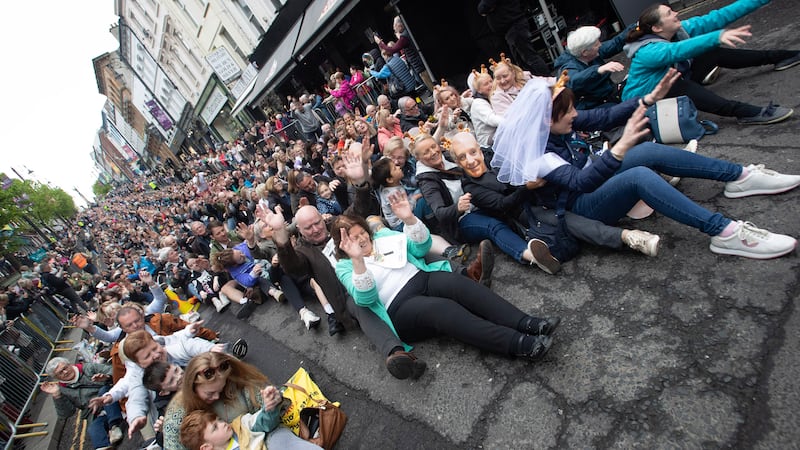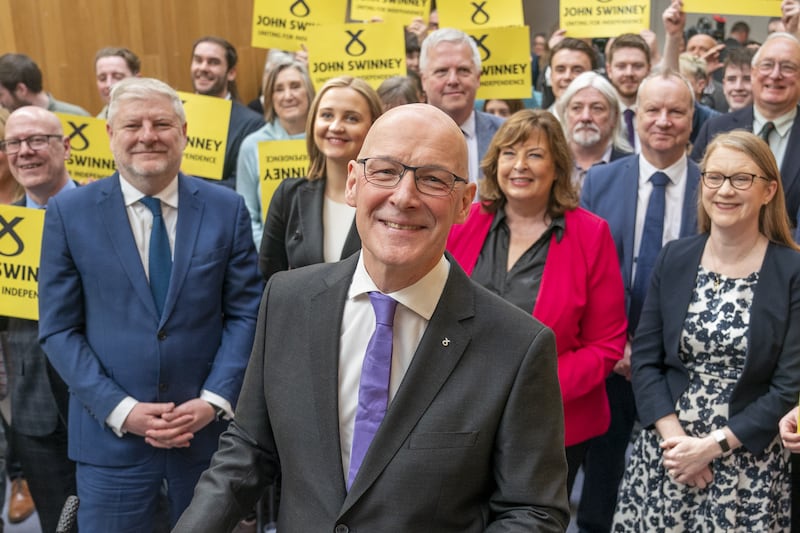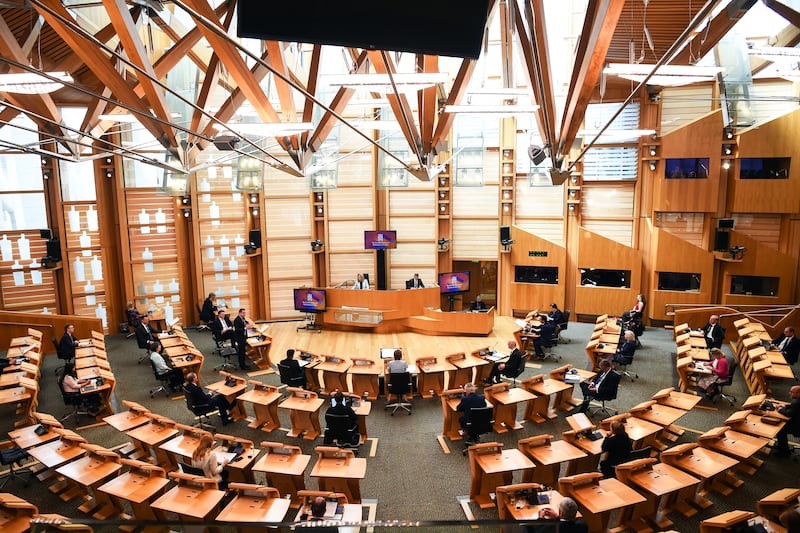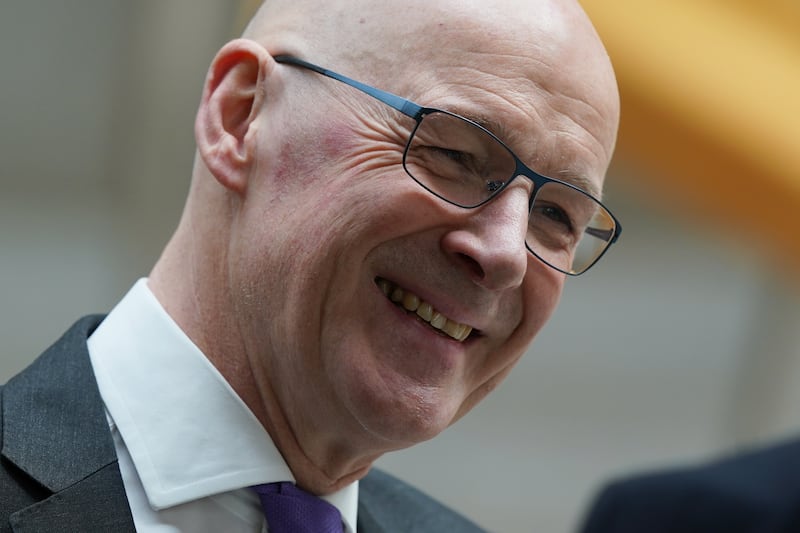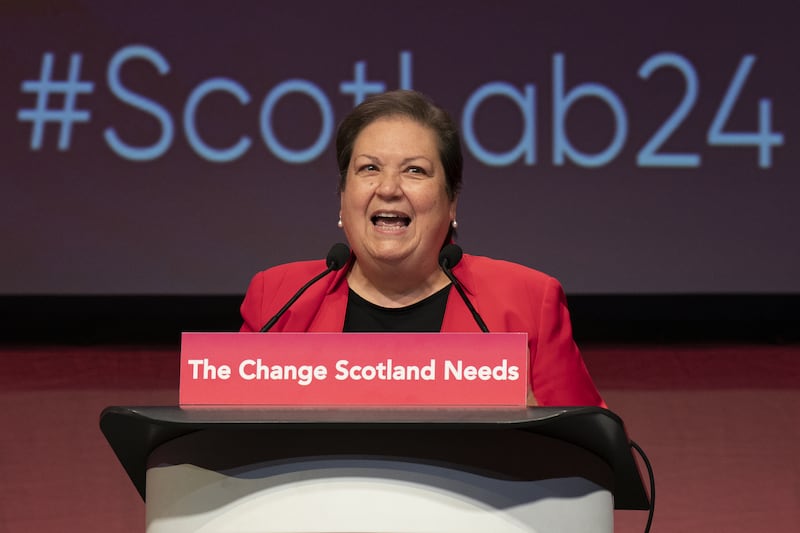Netflix has revealed it is releasing its first-ever Welsh language TV show on its platform.
The global streaming service said it has bought the licence for Dal y Mellt – a gritty crime thriller which follows a group of misfits as they come together to pull off a heist.
Adapted from a novel written by Iwan ‘Iwcs’ Roberts, Dal y Mellt – which translates as Catch The Lightning in English – was made by and aired on public service broadcaster S4C.
The series will be available on demand for UK audiences from April 2023 with English subtitles.
Benjamin King, Netflix’s director of public policy, UK and Northern Ireland, announced the news during a Welsh Affairs Committee evidence session on Wednesday.
Mr King said: “I’m actually very pleased to be able to share with the committee this morning that we are soon to announce that we have licenced a wonderful show from S4C in the Welsh language – Dal y Mellt – which aired on S4C last year, and it’s coming to Netflix in April.”
He told Welsh MPs that content made in Wales and about Welsh culture “travels extremely well” to audiences across the world.
And that Netflix could “play a helpful role in complementing the intent to promote and preserve the Welsh language”.
“The UK is one of the most important markets for Netflix, particularly in terms of production, and our investment in content,” Mr King said.
“We spend over a billion dollars every year here on UK-made content.
“But I think within the UK, Wales has consistently been the location for many of our most well-known and best loved shows.
“Most people are familiar with Sex Education and many people know as well that certain scenes from The Crown were filmed in Wales, but we also have a suite of other content that was made in Wales for example, our film Havoc, which is the largest feature film ever produced there,” he added.
Havoc, which stars Tom Hardy and Forest Whitaker and is about a detective who must rescue a politician’s estranged son after a drug deal goes awry, was filmed and produced at multiple locations in Wales and is due for release this year.
A number of Welsh programmes have made its may onto the subscription service in recent years, including Hinterland and Keeping Faith, but were aired in the English language.
More recently Netflix has made Welsh subtitles available on certain blockbuster films such as The Adam Project and Red Notice because of lead actor Ryan Reynolds’ connection with Wales as the new owner of Wrexham Football Club.
Welcome To Wrexham, a sports documentary about Reynolds and Always Sunny In Philadelphia star Rob McElhenney’s purchase of the club, was released by Disney+ last summer.
Netflix is the most popular video-on-demand service in Wales, with 74% of viewers over 13 watching it last year, according to Ofcom.
The Welsh Government has a target of creating one million Welsh speakers in Wales by 2050. Despite this, the latest census showed the number of Welsh speakers had dropped to 17.8%.
The committee session also heard from the Association for Commercial Broadcasters and On-Demand Services (COBA), an industry body representing commercial broadcasters and on-demand services, whose members include Now TV, Sky and BT.
COBA executive director Adam Minns said a thriving film and TV production industry had grown in Wales and said the focus of governments should be on building on that “success story”.
“I think one of our biggest contributions has been to create jobs in Wales and stop the brain drain, which I believe has been a concern,” Mr Minns said.
“We’ve helped create an additional 1000 jobs over the last five years.
“We’ve gone from a situation where there was literally one shown being made in Wales 15 years ago to Cardiff being one of the biggest production centres in the UK at the moment.”
Mr Minns said the areas surrounding filming locations benefited economically and that scenes set in Wales promoted tourism to the country.


